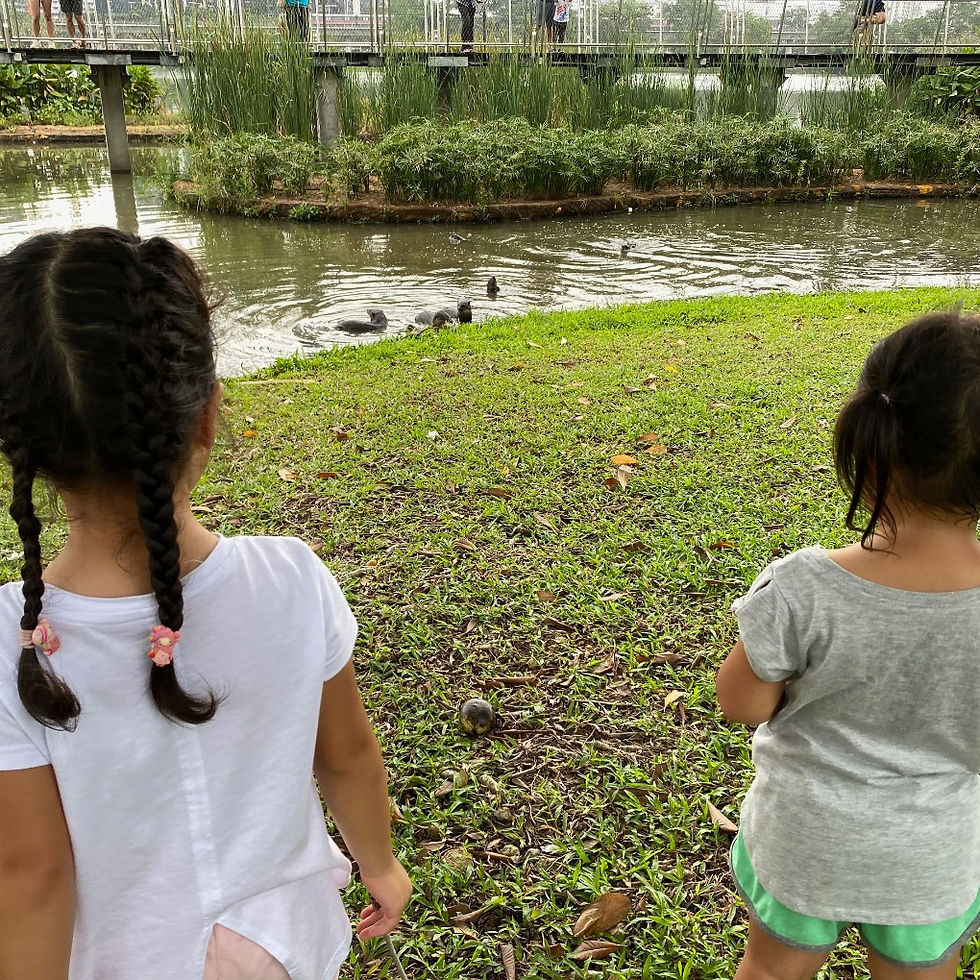Learning from Rainforest City: A Gameschooling Review
- Ly-ann Tan
- Feb 26, 2022
- 3 min read
Updated: May 23, 2022
This month, Ly-Ann reviews the entertainment and educational value of Rainforest City

As a homeschooling educator who uses tabletop board games to inspire and consolidate learning, I lean heavily on light to medium weight games like Open Ocean, Ecosystem and Evolution by North Star games as launching pads for our unit studies on Ocean Animals or Temperate Forest Biomes.
Last year, as our family was beginning our transition back to Singapore, I started to think about how we would approach a unit on South East Asian animals. Since board games are my instinctive starting point for a teaching topic, I started to think: If Ecosystem's theme is only generally related to its card laying mechanics, with adjacent animals sharing symbiotic relationships, surely it would be possible to see something on the game table for our local animal species to be represented. If only there were game designers who were aware and open to bringing that theme into the playing space!

So, when I heard about Rainforest City and how the animals of our rainforest, wetlands and waterways were represented, the teacher in me got very excited. Finally here was a way to introduce our kids to the natural biomes found specifically in Singapore through tabletop board games. I could use this game as a launchpad to introduce the animals found in South East Asia, discuss the relationship these animals have with each other and how environmental development impacts animal survival.
I enjoy the game mechanics of Rainforest City because the theme matches up well to the game play and reflects some part of the natural phenomenon.
Rainforest City plays very much like Daryl's earlier pattern building game, Overbooked, fitting pieces in sophisticated patterns. But, unlike the static seating arrangement in an airplane, in Rainforest City, players build dynamic habitats, just like the real biomes which are constantly changing, growing and being altered as humans interact with it.

Matching Flora and Fauna tokens, (the mangrove plants, coral fish, otters and pangolins) to appropriate habitat terrains make perfect sense. These are the local wildlife I spoke of earlier that I so wanted to see featured. These game pieces, with cute artwork, are the seeds which spark questions and discussions with the young 'uns I play with, about what these animals are and where they could be found. They also inspire us to visit Sungei Buloh, MacRitchie, Mandai, Coney Island and even Changi, to learn more about these features of Singapore.
As Singaporeans, nothing conveys "importance" like marks and scores. In game, the significance of balancing those ecosystems is reflected in the scoring; not just how many animals can be found in our habitat but also if those animals are part of a balanced food chain. The food chain feature of Rainforest City's scoring system is in the same vein as passenger placement in Overbooked. In order to gain the three points for a Carnivore, it will need to be fed by a two-point Herbivore, which in turn, needs a plant. That makes perfect sense. Now I will not need to remind my kids why these specific animal food chains are important. They will know it intrinsically because of the points that the supported food chain awards in Rainforest City.

In the last article, I shared a picture of our girls watching, in horror and fascination, as otters feasted on fish in Jurong Lake Garden while a monitor lizard prowled the perimeter for leftover carrion. We read this in our science textbooks and were fortunate enough to watch it happen in person. To be able to put that incident on our game table - by matching tokens to different habitats and chaining points to a food web in a way the children can manipulate - is a neat way to package and bring a concept to ‘life’ .
For more inspiring biome-themed board games check out these titles:
Planet by BlueOrange Games
Nature Fluxx by Looney Labs
Open Ocean by Featherstone Games
Ecosystem by Genius Games

Comentários